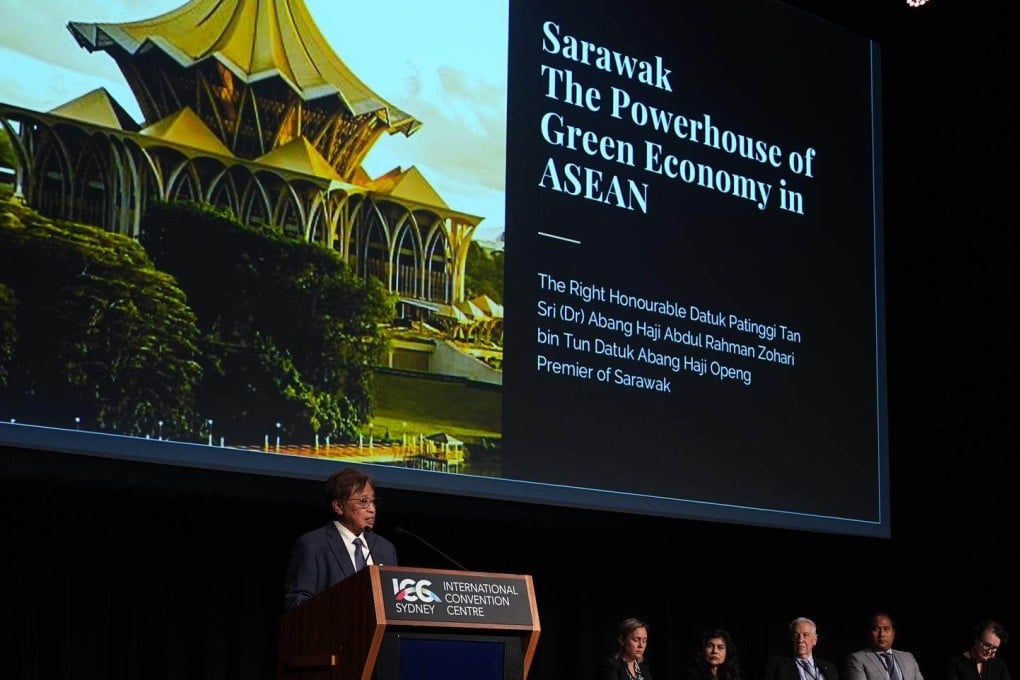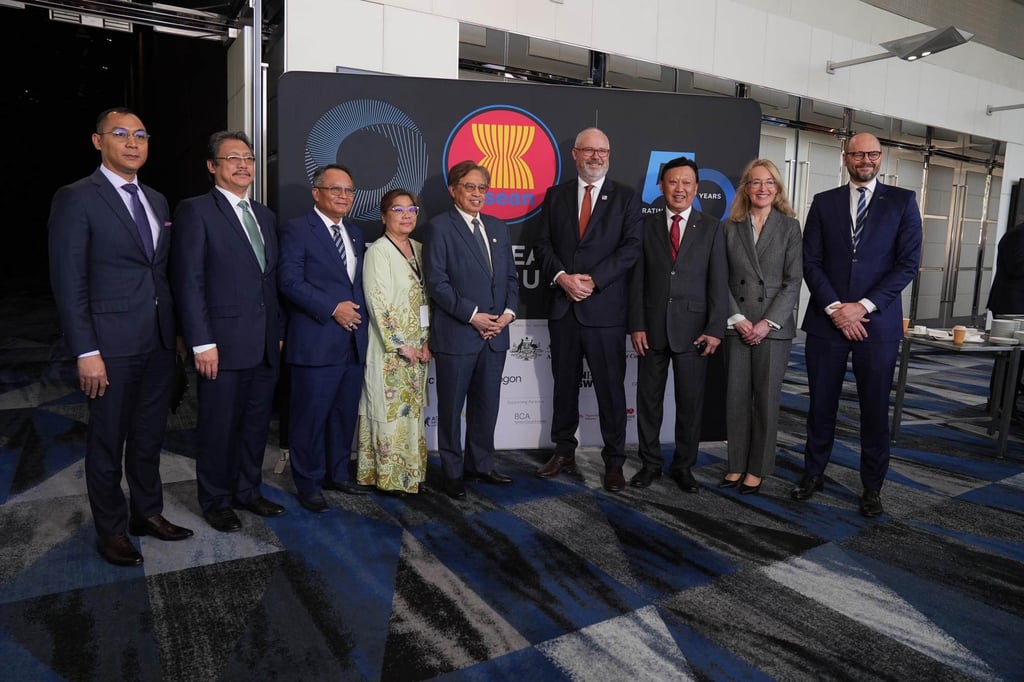Malaysia’s Sarawak courts Australian cooperation to boost green economy goals
Sarawak premier Abang Johari Openg told the Asean-Australian Business Forum that his state’s green economy shift will not happen on its own

“Sarawak stands at a critical juncture where we must decouple GDP growth from unsustainable energy and resource consumption. This shift will not happen on its own,” Abang Johari said while speaking at this year’s edition of the annual Asean-Australian Business Forum on Thursday.
The premier used this year’s forum to explore new opportunities for two-way exchanges in innovation and investments in areas like aerospace and green energy transition.
Sarawak was the only Southeast Asian state government to send representatives to join the 500 or so people who attended this year’s forum, which also included Asean country heads of mission, business chamber representatives and business leaders.

The East Malaysian state has made no secret of its ambitions to become the top green economy in Southeast Asia since 2021, when it launched its Post Covid-19 Development Strategy 2030. The plan aims to increase the state’s median monthly household income while simultaneously reducing greenhouse gas emissions by 45 per cent.